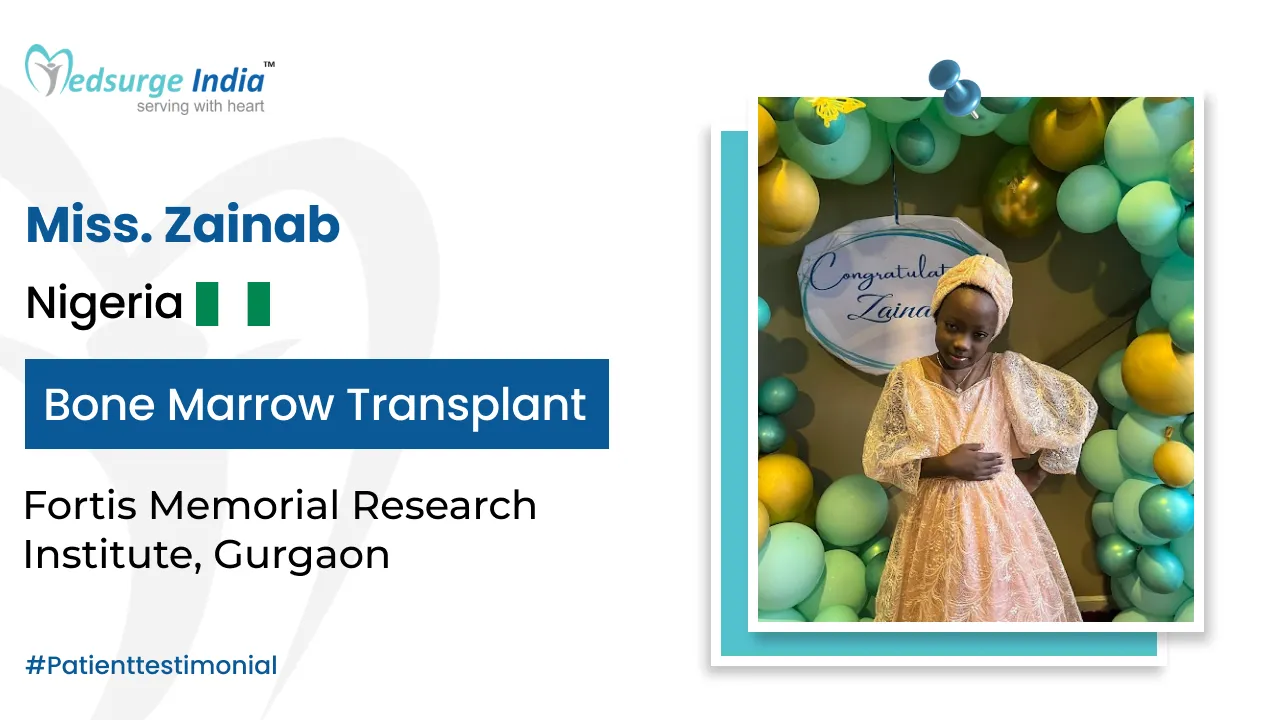
Your body employs a sophisticated mechanism called the immune system to combat cancer. Cells, organs, and proteins are all involved in this process. Cancer typically defeats the immune system’s natural defenses, which promotes the growth and spread of cancer cells. One sort of cancer treatment is immunotherapy. To boost the immune system and help the body find and get rid of cancer cells, it uses substances created by the body or in a lab.
Immunotherapy can be used to treat a variety of cancer types. It may be used alone or in conjunction with other cancer therapies such as chemotherapy.
In comparison to other Western countries, such as the USA, Immunotherapy Cost in India is quite affordable. The nation is recognized for offering high-quality, affordable medical care. The greatest facilities are accessible with reasonable healthcare packages, premium medical tools, and the assurance of first-rate medical professionals for people traveling for Immunotherapy in India.
What Is Immunotherapy
Cancer immunotherapy, also known as “Immuno-oncology”, is a type of cancer treatment that employs the immune system’s potential to prevent, control, and destroy cancer.
Immunotherapy has the ability to:
- Train the immune system to identify and target specific cancer cells.
- Boost immune cells to aid in the fight against cancer.
- Supplement the body with additional nutrients to boost the immune system’s reaction.
- Cancer immunotherapy can take several forms, including checkpoint inhibitors, cytokines, adjuvants, tumor-infecting viruses, adoptive cell transfer, targeted antibodies, and cancer vaccines.
Targeted antibodies, cancer vaccines, adoptive cell transfer, tumor-infecting viruses, checkpoint inhibitors, cytokines, and adjuvants are all examples of cancer immunotherapy.
Immunotherapies (also known as biologic therapy or biological response modifier (BRM) therapy) are a type of biotherapy that uses materials from living organisms to combat disease.
Some immunotherapy treatments are referred to as gene therapies because they involve genetic engineering to improve immune cells’ cancer-fighting capacities.
Many immunotherapy treatments for cancer prevention, management, and treatment can be combined with surgery, chemotherapy, radiation, or targeted therapies to boost their efficacy.
What Is the Immune System?
Your immune system consists of organs, antibodies (proteins), and immune cells that work together to fight disease and infection.
Immune cells include the following:
- B-cell lymphocytes: Are white blood cells that create antibodies that combat infections.
- T-cell lymphocytes: T-cell lymphocytes are white blood cells that hunt down and kill malignant cells. T-cells also signal the presence of pathogenic or alien cells to other cells.
- Dendritic cells: Are immune cells that interact with T-cells to trigger an immunological response.
- Granulocytes: Neutrophils, eosinophils, and basophils are white blood cells that fight infections.
How Does the Immune System Work
All of the compounds that are regularly found in the body are tracked by the immune system. Any new substance that the immune system does not identify sets up an alarm, prompting the immune system to launch an attack.
These are recognized as “foreign” by the immune system, which attacks them. Anything holding a foreign substance, such as bacteria or cancer cells, can be destroyed by the immune reaction.
The immune system, on the other hand, has a harder time identifying cancer cells. This is due to the fact that cancer begins when normal, healthy cells are transformed or modified and begin to grow out of control. The immune system does not always recognize cancer cells as foreign since they begin in normal cells.
What Are the Types of Immunotherapy
Immunotherapy is used to treat cancer in a variety of ways. These are a few examples:
- Immune checkpoints Inhibitor
- T-Cell Transfer Therapy
- Monoclonal Antibodies
- Treatment Vaccines
- Immune System Modulators
- Cancer Vaccines
Many factors will influence the medicine kind, dosage, and treatment regimen. The type of cancer, its size, location, and extent of dissemination are all factors to consider. Your age, overall health, body weight, and ability to handle side effects are all factors to consider. Discuss with your doctor why he or she recommends a particular immunotherapy regimen.
Immunotherapy For Lung Cancer
There has been a lot of recent positive news about immunotherapy in lung cancer treatment. Checkpoint inhibitors have become a popular treatment option for advanced lung cancer in recent years.
Immunotherapy is a type of treatment for lung cancer, especially non-small cell lung cancer. It’s also known as biotherapy or biologic therapy.
Immunotherapy is a type of treatment that involves using medications to activate your immune system in order to locate and eliminate cancer cells.
Immunotherapy For Breast Cancer
If breast cancer is detected early, the current treatment options usually include surgery. Breast cancer treatment may include immunotherapy, chemotherapy, and/or radiation, depending on the stage and molecular characteristics of cancer at the time of diagnosis.
Immunotherapy is a relatively new breast cancer treatment that use your immune system to identify, target, and kill cancer cells. Immunotherapy has the potential to treat recurrent breast cancer, metastatic breast cancer, and triple-negative breast cancer, although chemotherapy and radiation therapy are remain mainstay therapies for breast cancer.
What Should be Expect after Immunotherapy
Immunotherapy does not always result in tumor shrinkage, unlike chemotherapy. Even when people are in good health, tumors can expand or grow in size when immune cells fight cancer. Pseudoprogression is the term for this occurrence. The word refers to the fact that a tumor may only appear to be getting worse, yet patients may still benefit.
To track therapy response, you’ll need to visit your doctor frequently. Physical examinations, blood tests, and imaging scans may be performed on a regular basis.
How Effective is Immunotherapy?
Individual characteristics, such as disease kind and stage, influence the success rates of any cancer treatment, including immunotherapy. Generally speaking, immunotherapy is effective in treating a wide variety of cancers. While some malignancies are more immunogenic than others, immunotherapy is beneficial in the treatment of a wide range of cancers in general. Immunotherapy, unlike chemotherapy or radiation, can induce long-lasting responses, but only around 25% of patients experience them.
Studies have shown that even after therapy has ceased, the immune system may recall cancer cells.
Immunotherapy Cost In India
The average Immunotherapy Cost in India starts from USD 3,900. The severity of the malignancy will determine how many sessions are needed. While some patients might only need one session, others might need several.
As there are a number of variables that affect Immunotherapy in India, this includes the type of treatment, the method employed, as well as the hospital and location of choice, the doctor’s qualifications, and so on. For this reason alone, many people come from all over the world for medical care in India for a variety of reasons, such as the price of Immunotherapy in India being much lower compared to other countries which is by far the most important.
Immunotherapy Cost in Different Parts of India
| Cities | Starting Price |
| Delhi | USD 3,900 |
| Gurgaon | USD 3,900 |
| Noida | USD 3,900 |
| Mumbai | USD 4,000 |
| Hyderabad | USD 3,900 |
| Chennai | USD 3,900 |
| Kolkata | USD 3,900 |
| Bangalore | USD 4,000 |
Please keep in mind that prices of Immunotherapy Cost in India will vary depending on the various factors.
Factors That Can Affect Immunotherapy Cost in India
The following here are some variables that can affect Immunotherapy Cost in India:
- Medication costs.
- Duration of treatment.
- Geographical location.
- Hospitalization expenses.
- Government policies and subsidies.
- Medical tourism packages.
- Hospital reputation and infrastructure.
- The expertise and experience of medical professionals.
- The type and frequency of diagnostic procedures.
- The choice of treatment modality.
Even after eliminating the cost of hotel, meals, and transportation, the caliber and grade of medical care and amenities are on par with that of the world’s most renowned healthcare centers. Patients can receive the lowest Immunotherapy Cost in India from Medsurge India.
Best Oncologist in India
Get Free Cost Estimation
Procedure
How Immunotherapy is Used to Treat Cancer
Immunotherapy is a type of treatment that makes use of specific sections of a person’s immune system to combat diseases like cancer. This can be accomplished in a variety of ways:
- Stimulating or enhancing your immune system’s defensive capabilities so that it works harder or smarter to detect and fight cancer cells.
- You can restore or enhance your immune system’s capacity to recognize and eradicate cancer cells by synthesizing substances that are comparable to immune system components in the lab.
Immunotherapy has been a significant aspect of the treatment of several cancers in recent times. New immunotherapy treatments are being studied and authorized at a fast rate, as are new techniques of dealing with the immune system.
Some forms of cancer respond better to immunotherapy than others. It is used alone to treat some malignancies, but when coupled with other therapies, it seems to work better for other malignancies.
The use of Immunotherapy in cancer treatment works better with respect to other type of cancer treatment.
Immunotherapy is used to treat a variety of cancers, including but not limited to the following:
- Bladder Cancer
- Brain Cancer
- Breast Cancer
- Head and Neck Cancer
- Leukemia
- Kidney and Liver Cancer
- Lung Cancer
- Prostate Cancer
- Skin Cancer
- Lymphoma
Best Cancer Treatment Hospital in India
- Fortis Hospital Noida
- Amrita Hospital, Faridabad
- Manipal Hospital Dwarka, Delhi
- Indraprastha Apollo Hospital New Delhi
- HCG Cancer Centre, Bangalore
- Fortis Hospital Gurgaon
Why Do Individuals Prefer to Have Immunotherapy in India
The country has some of the best medical care facilities and services in Asia, making medical tourism in India very popular. The best Hospitals for Immunotherapy in India provide all types of disease-related and cancer-related surgeries using advanced technology. Also, the Immunotherapy Cost in India is much more affordable as compared to other states or nations around the world. An international patient can expect to pay 50-60% less for Immunotherapy in India.
The hospitals that do Immunotherapy in India provide comprehensive appropriate treatment, including comprehensive pre-operative evaluations, minimally invasive surgical options, and post-operative rehabilitation programs. Patients can expect personalized treatment, individualized attention, and compassionate care at these medical facilities. The hospitals are accredited by top international organizations such as the National Accreditation Board for Hospitals and Healthcare Providers (NABH) or the Joint Commission International (JCI).
From medical visa processing to travel preparations to appointment scheduling and lodging, the foreign patient department at the finest cancer hospitals in Medsurge India assists and coordinates with the patient throughout the process.
What to Look for When Choosing a Hospital For Immunotherapy in India
Indian hospitals that perform cancer treatment are well-known for their hospitality and patient care services providing the finest hospital and oncologists in India. However, choosing a suitable hospital for treating Immunotherapy in India can be difficult for an international patient. It is a significant decision that must be made with several factors in mind, including:
- Quality certificates and accreditations
- Hospital and transportation facility location
- Team of doctors and surgeons
- Advanced diagnostic and therapeutic equipment
- International patient assistance
How can Medsurge India Help
Medsurge India is a prestigious support system for patients looking for doctors, hospitals, and specialized treatments. Our staff will provide you with a list of licensed, renowned, and trustworthy physicians and medical facilities in relation to your medical needs. Additionally, we offer a treatment strategy that fits your budget. Apart, we assist patients with obtaining travel authorizations, medical visas, and a multitude of other things.
The Most Important Frequently Asked Questions
Q: What Are the Disadvantage of Immunotherapy?
A: Side Effects: Some types of immunotherapy stimulate your immune system, causing flu-like symptoms. Weight gain, stuffiness, diarrhoea, and inflammation are all possible side effects. In the area where the drug is applied, you may experience pain, itching, redness, swelling, or soreness.
Q: What Are the Signs That Immunotherapy Is Working?
A: A tumor that is shrinking or stable is considered a favourable response to immunotherapy. Although treatment side effects like inflammation may indicate that immunotherapy is having an effect on the immune system, the precise relationship between immunotherapy side effects and treatment success is unknown.
Q: Do You Lose Hair with Immunotherapy?
A: Hair thinning is more likely to occur as a result of hormone therapy, targeted cancer medicines, and immunotherapy. However, some people may have hair loss. Hair falls out in the treated area as a result of radiotherapy. Other regions of the body’s hair are normally unaffected.
Q: Can Immunotherapy Damage Kidneys?
A: Acute kidney injury is a common side effect of a variety of medical operations, including cancer treatment. Both chemotherapy and immunotherapy can cause kidney function to deteriorate, which can lead to an increase in cancer patient mortality.
Q: Can Immunotherapy Cause Heart Problems?
A: Immunotherapy medications increase the risk of heart issues in cancer patients. A study of over a thousand cancer patients who were given immunotherapy medications discovered that they had a higher risk of cardiac problems, including death from a heart attack or stroke.
Top Hospitals for Immunotherapy in India
Top Doctors for Oncology and Oncosurgery
Dr. Sunil Kumar Gupta
Senior Consultant
Experience: 33 years of experience
Venkateshwar Hospital, New Delhi
New Delhi, India
Dr. Mallik Singaraju
Consultant , MBBS, MD
Experience: 13 years of experience
Continental Hospitals, Hyderabad
Hyderabad, India
Dr. Siddharth Turkar
Experience: 11+ years of experience
NH MMI Narayana Superspeciality Hospital, Lalpur, Raipur
Raipur, India
Dr. Monika Pansari
Consultant
Experience: 15 years of experience
BGS Gleneagles Global Hospitals, Bangalore
Bangalore, India
Dr. Sankar Srinivasan
Senior Consultant
Experience: 30 years of experience
Apollo Cancer Hospital, Chennai
Chennai, India
Dr. Mandeep Singh Malhotra
Senior Consultant
Experience: 15 years of experience
Fortis Memorial Research Institute, Gurgaon
Gurgaon, Haryana
Dr. Suvadip Chakrabarti
Consultant
Experience: 9 years of experience
Apollo Gleneagles Hospital Kolkata
Kolkata, India
Dr. Sampath Kumar M.N.
Consultant
Experience: 10 years of experience
Manipal North Side Hospital, Malleshwaram, Bengaluru
Bangalore, India
Dr. Nandini. C. Hazarika
Senior Consultant
Experience: 15 years of experience
Fortis Memorial Research Institute, Gurgaon
Gurgaon, India
Dr. Rohit P V Nair
Consultant , MBBS, Post Graduation, MRCS
Experience: 9 years of experience
Kochi, India
Dr. Ankur Bahl
Director
Experience: 16 years of experience
Fortis Memorial Research Institute, Gurgaon
Gurgaon , India
Dr. Kaustav Talapatra
Director
Experience: 17 years of experience
Nanavati Super Specialty Hospital Mumbai
Mumbai, India
Dr. Deepak G Chhabra
Visiting Consultant
Experience: 12 years of experience
Dr. L H Hiranandani Hospital, Mumbai
Mumbai, India





























































